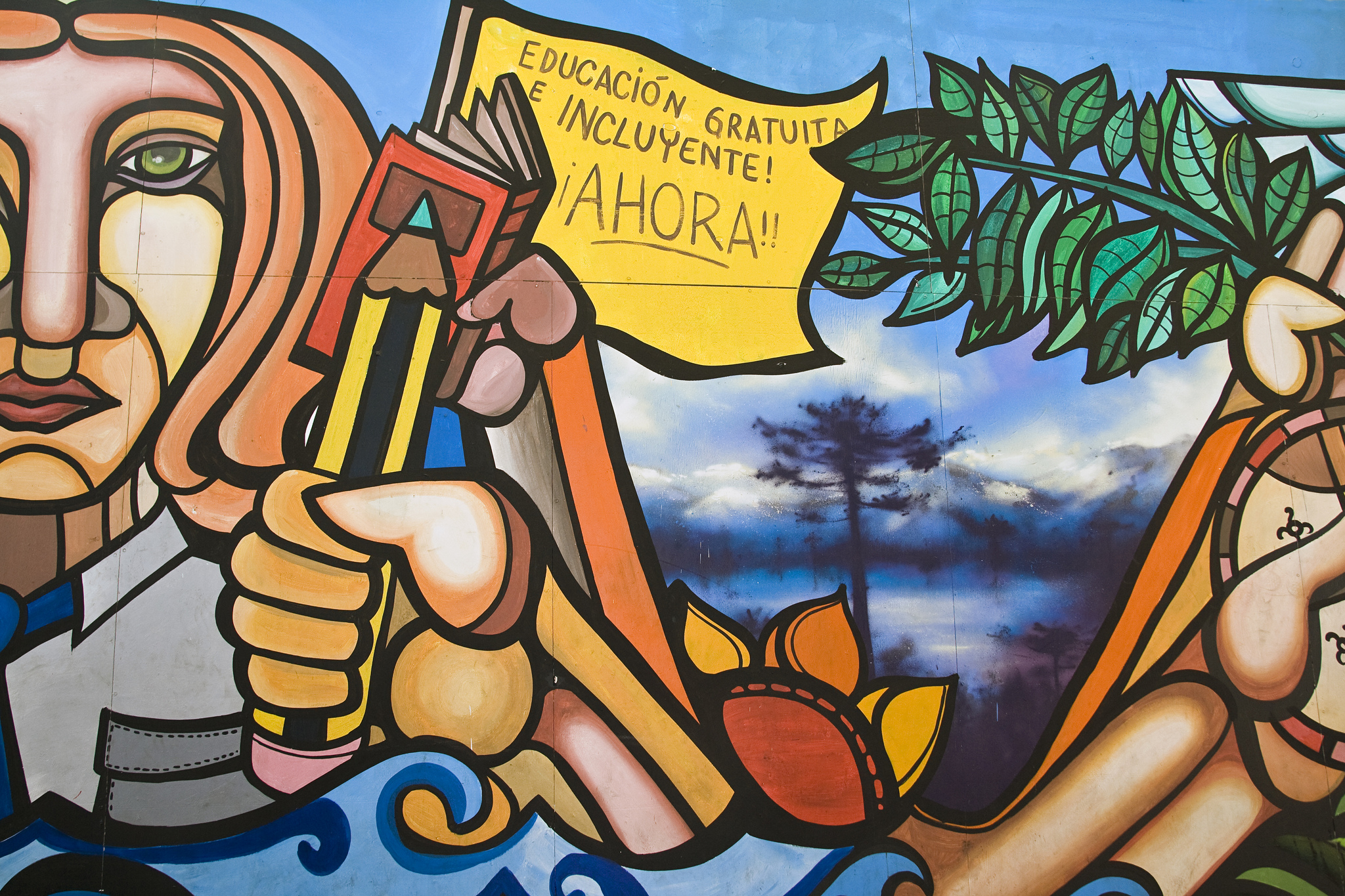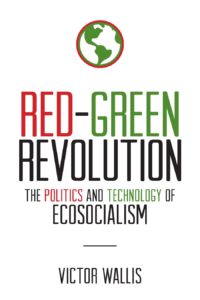by Victor Wallis
A short introduction to key terms in political theory by the author of Red-Green Revolution: The Politics and Technology of Ecosocialism
A capitalist society is one in which the major decisions about what is produced (and how, and how much, and for whom) are made by the capital-owning class and/or its representatives. Capital differs from earlier forms of wealth in that it is liquid, i.e., it can be bought and sold on the market. Capitalist wealth includes machinery (what Marx called “means of production,” or capital in the narrow sense), but it also includes land and financial instruments (money, stocks & bonds, etc.).
Most of this wealth is concentrated in large corporations or financial institutions, whose goal is to maximize their own profits. To do this, they must sell as much as possible and pay out as little as possible. Sales are maximized by responding not simply to needs but rather to market-demand (i.e., needs or wants backed by purchasing power). Market-demand is in turn shaped partly by public policy (e.g., if there’s no mass transit, more people will have to buy cars) and partly by a whole culture of advertising and public relations. At the same time, costs are minimized by paying workers as little as possible (including moving production to low-wage areas) and by skimping on such matters as waste-disposal and workplace safety & health.
Capitalist ideology constantly talks about freedom, but the freedom it really refers to is the opportunity of those who have money to enrich themselves even further. The civic freedoms that we value result not from capitalist policies but rather from the organized struggles that have been waged (over the centuries) against concentrated power and privilege. The US Bill of Rights, for example, was a concession to popular pressure, not part of the original Constitution. In the eyes of a capitalist government, a regime which enjoys majority support but which threatens the moneyed interests is bad (e.g., Venezuela), while a regime which is tyrannical but protects moneyed interests is o.k. (e.g., Saudi Arabia).
Socialism arose historically as a response to capitalism. Its point of departure is the contention that capital is a social product—the fruit of countless hours/days/years of labor expended by hundreds of millions of people—and therefore that it should be under social control, i.e., under the control of the whole society. Socialism is not simply “government control” because this doesn’t tell you whose government it is. Nor does socialism necessarily imply that everyone has exactly the same things and lives exactly like everyone else. What it does mean is that society is no longer run by a class of private or corporate owners of large-scale property. Instead, this class has been broken up and the society is run democratically. This means that you no longer vote just occasionally for one or another candidate who has passed the money-test; rather, there are structures for informed, society-wide deliberation and decision-making on all matters that affect people’s lives.
The historical attempts to implement socialism have a mixed record, which includes some major achievements but also some terrible failures. The failures were due in part to the unfavorable conditions under which the first attempts were launched and in part also to the unmitigated efforts of capitalist governments to destroy them. The future of socialism is therefore an open question, although the popularity of socialist ideas is growing. But the future of capitalism is clear. With its incessant expansionist thrust, it will degrade the environment, wage war, run roughshod over civic freedoms, and keep the majority of the world’s population from securing the structural changes they would need in order to be able to live decent lives.
Victor Wallis is a professor of Liberal Arts at the Berklee College of Music. He was for twenty years the managing editor of Socialism and Democracy and has been writing on ecological issues since the early 1990s. His writings have appeared in journals such as Monthly Review and New Political Science, and have been translated into thirteen languages.
He is the author of the book Red-Green Revolution, published by this magazine’s parent company, Political Animal Press.
Image: Socialist mural, Santiago, Chile, “Free and inclusive education ¡NOW!” by Dimitri B, via flickr (CC BY 2.0)











Leave A Comment